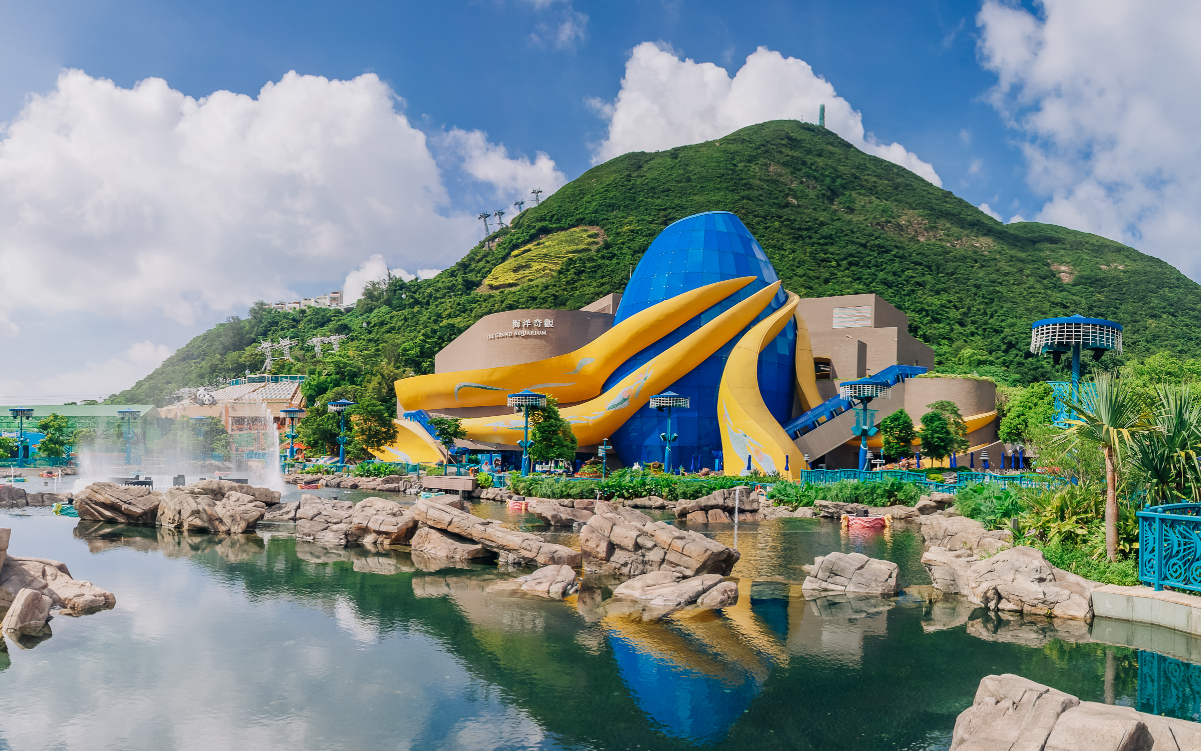오션파크로 떠나는 즐거운 여행에 필요한 모든 것
Ocean Park is saddened to announce the euthanasia of Dougie, a five-year-old male southern koala, this morning as a result of kidney failure caused by an incurable disease known as oxalate nephrosis, which occurs in the South Australian population from where the koala originated.
Dougie was first observed with reduced appetite and continued weight loss in early July. Soon thereafter, crystals were observed in his urine, a symptom of oxalate nephrosis. In order to better understand the health of Dougie’s kidneys, a biopsy of the kidneys was taken.
The biopsy showed that his kidneys were affected by the renal disease, oxalate nephrosis, due to the crystal formation. The Park’s animal care team provided Dougie with around the clock medical treatment and palliative care. Unfortunately, his condition continued to deteriorate and it was determined that he had reached his humane endpoint. To prevent further unnecessary suffering, the Park’s veterinarians recommended euthanasia for the koala, a decision supported by Government of South Australia and the Hong Kong Agriculture, Fisheries and Conservation Department (AFCD). The recommendation is also in line with veterinary ethics, animal welfare, and the approved euthanasia policy of the Association of Zoos and Aquariums.
Dr Paolo Martelli, Director for Veterinary Service of Ocean Park, said, “Although Dougie was asymptomatic when he arrived at Ocean Park in 2014, oxalate nephrosis is a common disease among the koala population in South Australia and has been observed in koalas from less than two years of age. Ongoing research is being conducted regarding the cause(s) of the disease in koalas. It is possible the low genetic diversity of southern populations may be a contributing factor. Oxalate nephrosis is a disease characterised by deposition of calcium oxalate crystals in the kidneys, which inevitably leads to renal failure. We have done our best to provide Dougie with the best possible care and treatment to keep his conditions under control.”
Suzanne Gendron, Executive Director of Zoological Operations & Conservation of Ocean Park, said, “Our animal care team have provided all the husbandry and veterinary treatment we could for Dougie, and we are deeply saddened that this unfortunate outcome could not be avoided despite our extensive efforts. As one of our key animal ambassadors, Dougie has helped to raise public awareness about LOHAS (Lifestyle Of Health and Sustainability) and the impact of climate change on their natural habitats, and he will be dearly missed. The Park will continue to support research in South Australia to understand this disease, and to help advance early diagnostic technics for oxalate nephrosis in southern koalas.”
Currently, female southern koala Yani and other iconic South Australian species are residing at Adventures in Australia.
Dougie was first observed with reduced appetite and continued weight loss in early July. Soon thereafter, crystals were observed in his urine, a symptom of oxalate nephrosis. In order to better understand the health of Dougie’s kidneys, a biopsy of the kidneys was taken.
The biopsy showed that his kidneys were affected by the renal disease, oxalate nephrosis, due to the crystal formation. The Park’s animal care team provided Dougie with around the clock medical treatment and palliative care. Unfortunately, his condition continued to deteriorate and it was determined that he had reached his humane endpoint. To prevent further unnecessary suffering, the Park’s veterinarians recommended euthanasia for the koala, a decision supported by Government of South Australia and the Hong Kong Agriculture, Fisheries and Conservation Department (AFCD). The recommendation is also in line with veterinary ethics, animal welfare, and the approved euthanasia policy of the Association of Zoos and Aquariums.
Dr Paolo Martelli, Director for Veterinary Service of Ocean Park, said, “Although Dougie was asymptomatic when he arrived at Ocean Park in 2014, oxalate nephrosis is a common disease among the koala population in South Australia and has been observed in koalas from less than two years of age. Ongoing research is being conducted regarding the cause(s) of the disease in koalas. It is possible the low genetic diversity of southern populations may be a contributing factor. Oxalate nephrosis is a disease characterised by deposition of calcium oxalate crystals in the kidneys, which inevitably leads to renal failure. We have done our best to provide Dougie with the best possible care and treatment to keep his conditions under control.”
Suzanne Gendron, Executive Director of Zoological Operations & Conservation of Ocean Park, said, “Our animal care team have provided all the husbandry and veterinary treatment we could for Dougie, and we are deeply saddened that this unfortunate outcome could not be avoided despite our extensive efforts. As one of our key animal ambassadors, Dougie has helped to raise public awareness about LOHAS (Lifestyle Of Health and Sustainability) and the impact of climate change on their natural habitats, and he will be dearly missed. The Park will continue to support research in South Australia to understand this disease, and to help advance early diagnostic technics for oxalate nephrosis in southern koalas.”
Currently, female southern koala Yani and other iconic South Australian species are residing at Adventures in Australia.







